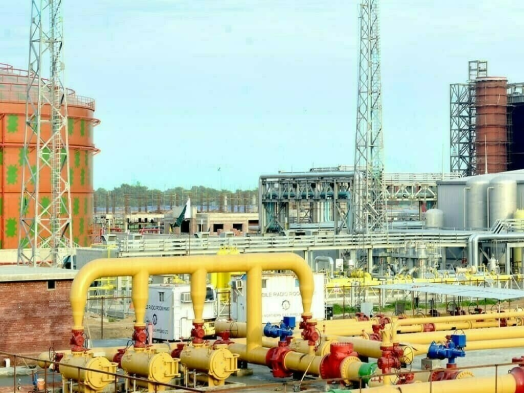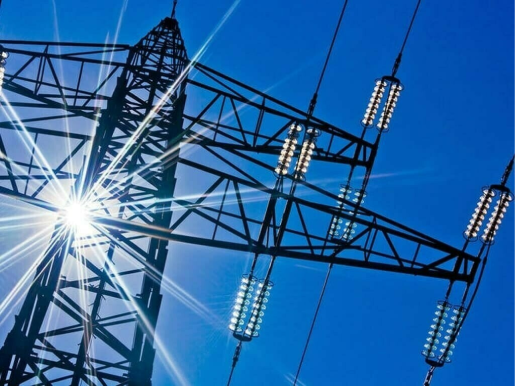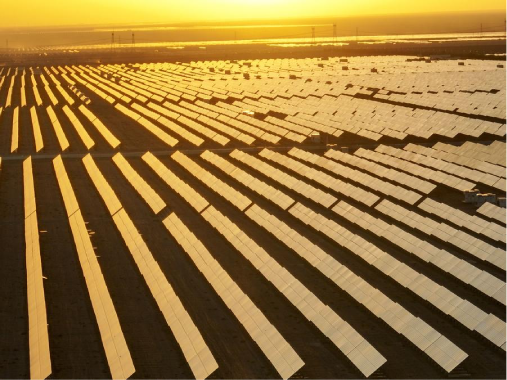ISLAMABAD: In a turning point in the pricing of regasified liquefied natural gas (RLNG), the Oil and Gas Regulatory Authority (Ogra) on Wednesday reduced to about 6.3 per cent — from about 17pc in the past — the cost of losses in tariff through a majority decision.
In doing so, the regulator also notified the RLNG price for last four months — August to November — that had been withheld due to lack of Ogra quorum and disagreement among two remaining members. The decision is estimated to have provided about Rs14bn ($85 million) savings to RLNG consumers over these four months. Meanwhile, an equal amount of burden is expected to be placed on the finances of Sui Northern Gas Pipelines Ltd (SNGPL) and Sui Southern Gas Company Ltd (SSGC).
As such, the unaccounted for gas (UFG) loss allowance in tariff for SNGPL reduced by about 5pc while that of SSGCL by about 10pc.
By majority, Ogra also decided to appoint through competitive bidding an international auditor to conduct technical, commercial and management audit of the RLNG pricing including data provided by the companies in the LNG supply chain for the last 4-5 years. Based on such audit for which terms of reference have been finalised, adjustments would be made in case it was found that excess payments had been allowed to gas companies in past pricing.
However, due to delay in the price notification for past four months, the RLNG consumers would have to absorb the impact of higher oil prices and RLNG in the international market in one go instead of monthly adjustments. The majority decision was made by Member Gas Muhammad Arif and Member Oil Zain-ul-Abideen Qureshi while Vice-Chairman and Member Finance Noorul Haque wrote a dissenting note.
Under the decision, final distribution tariff for August was notified at $6.129 per million British Thermal Unit (mmBtu) for SSGCL and $6.379 per mmBtu for SNGPL. This increased to $6.678 and $6.93 per unit for SSGCL and SNGPL respectively in September as spot market started to go up. The RLNG price for SSGCL and SNGPL further went up to $7.16 and $7.414 per mmBtu respectively in October. The price further rose to $7.397 and $7.658 per mmBtu for SSGCL and SNGPL respectively.
Pakistan State Oil (PSO) — the major RLNG supplier — had been protesting over inordinate delay in price notification and had warned the government of disruptions in gas supply chain in peak winters.
The regulator had not notified the RLNG prices after July owing to disagreement between its two technical departments — finance and gas — over the quantum of RLNG losses to be charged by the gas companies to consumers.
The controversy emerged a few days before the retirement of former Ogra Chairperson Uzma Adil in July when Member gas Muhammad Arif pointed out a discrepancy in RLNG tariff and advocated that UFG loss for fiscal year 2020-21 for SSGCL should be taken as 6.42pc (including 0.12pc of transmission loss).
Likewise, UFG for SNGPL should be taken at 6.68pc (including 0.38pc transmission loss) on provisional basis.
On the other hand, Member Finance Noorul Haque, based on past practices, had been insisting on allowing the cost benefit of about 11pc RLNG loss to SNGPL and 8.73pc to SSGCL.
Mr Arif had noted that it was earlier held by the majority vote of Ogra that the issue was of technical nature and should be decided and approved by the member gas which had been done with detailed reasoning. As the quorum broke, the member finance argued that decision should be made on completion of quorum, resulting in no price notification after July.
It is on Ogra record that total LNG sales and losses combined should not be more than the LNG received in the system and hence UFG allowance claimed for LNG sales should be the basis for RLNG price notifications. However, actual LNG sales and UFG charged to consumers put the total LNG quantities about 7-8pc higher. It was noted that through internal workings that the regulator had erroneously been allowing gas companies to charge about 6-7pc higher losses to the RLNG consumers for at least five years, resulting in significantly higher rates.
The record suggested that a ECC decision of June 2016 provided for “distribution loss to be determined and charged at actual. The said loss for the customers located on high pressure transmission lines as well as those customers who are willing to lay their dedicated line shall also be determined and charged as actual.
However, for other customers on distribution lines, an actual average UFG for the last financial year will be taken in the determination.” The ECC decision had also held that transmission loss to be charged at actual subject to a maximum of 0.5pc.
During proceedings for determination of final revenue requirement (FRR) of SNGPL for the year 2018-19, “it transpired that no effective and objective determination was undertaken by Ogra relating to distribution loss” and whatever had been claimed by SNGPL, had been proposed by the Ogra’s Gas Department and taken as “determination of authority”.





